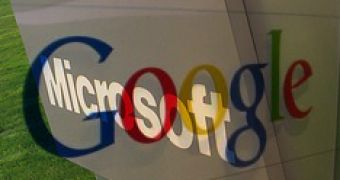On December 19th, Microsoft and Viacom announced a broad-based strategic alliance designed as nothing more than a slap in Google's face. The two companies partnered on a range of aspects, including the serving of advertising, but also on content distribution, as well as promotions focused on gaming materials and events. Although neither party choose to disclose the details of the agreement, the estimated value of the deal is at $500 million. And although the scope of the partnership is broader and not focused exclusively on advertising, it is clear that Viacom has looked for a partner at the opposite pole of Google's sphere of influence, and Microsoft fit the description just right.
"We look forward to collaborating closely with Microsoft as we move forward. This partnership will generate significant value on both sides. This deal is an important example of how the growing success of our digital properties is driving greater revenue for Viacom as a whole", revealed Philippe Dauman, president and chief executive officer of Viacom. Dauman, on the other hand, strongly denied that the copyright dispute between Viacom and Google had reverberated on the decision to adopt Microsoft's ad-serving platform.
Dauman underlined the fact that advertising was merely one aspect of the new five year relationship inked with Microsoft. But at the same time, Dauman pointed out the relevance of Microsoft's strong copyright policies. In comparison, Google adopted a relaxed approach to copyright infringement, and nowhere was that mode visible than with the acquisition of YouTube. It is the copyrighted content on YouTube that has made Viacom sue Google for over $1 billion.
"I think the fact that you have a media company of the size and scale of Viacom -- certainly they look in the industry and they know who all the players are, they've evaluated alternative ad platforms. The fact that they've selected Microsoft is reflective of the fact that the investments we've made, the assets we've accumulated, are coming together in a way that delivers value to them. They certainly are a flagship publisher, when you look at the media and content industry", revealed Kevin Johnson, president of Microsoft's Platforms and Services Division, as cited by SeattlePI.
But, the undeniable fact remains that Viacom has switched from DoubleClick to Microsoft's Atlas, the advertising platform that came along with the $6 billion acquisition of aQuantive earlier in 2007. DoubleClick has become inherently associated with the Mountain View search giant, after Google announced plans to purchase it for $3 billion, the deal being still under the scrutiny of antitrust regulators.
At the same time, Google's position is that the $500 million partnership between Microsoft and Viacom is an illustrative example of the options available on the advertising market, outside of DoubleClick. The Redmond company, on the other hand, reiterated its position that by buying DoubleClick, Google is actually buying the monopoly on the advertising market, of which it would end up owning more than 80%.

 14 DAY TRIAL //
14 DAY TRIAL //